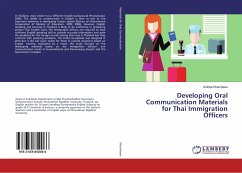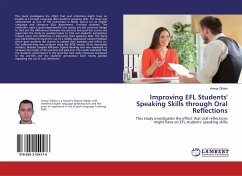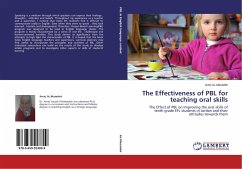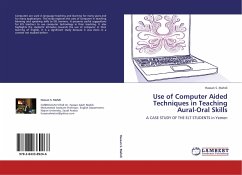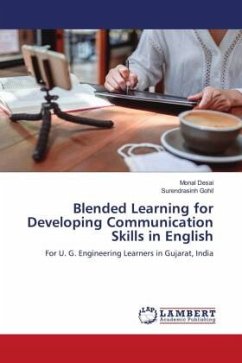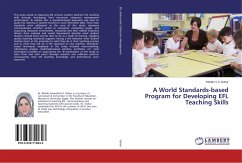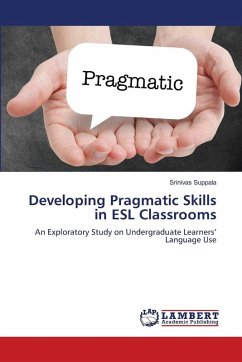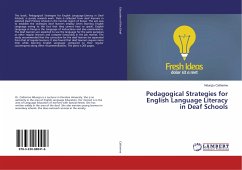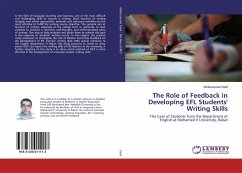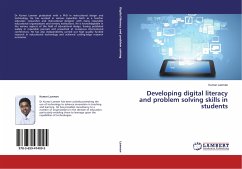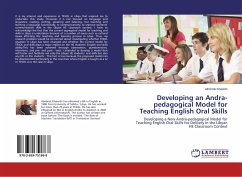
Developing an Andra-pedagogical Model for Teaching English Oral Skills
Developing a New Andra-pedagogical Model for Teaching English Oral Skills for Delivery in the Libyan HE Classroom Context
Versandkostenfrei!
Versandfertig in 6-10 Tagen
15,99 €
inkl. MwSt.

PAYBACK Punkte
8 °P sammeln!
It is my interest and experience in TESOL in Libya that inspired me to undertake this study. However, it is not focused on language and linguistics, reading, writing, speaking and listening, but teaching and learning a language functionally, or communicatively, to improve students' communication skills in the Libyan HE classroom context. I have to acknowledge the fact that the current segregated model for teaching oral skills in Libya is undertaken because of a number of issues such as cultural issues affecting the teaching and learning process in Libya. Thus, my research problem would be conc...
It is my interest and experience in TESOL in Libya that inspired me to undertake this study. However, it is not focused on language and linguistics, reading, writing, speaking and listening, but teaching and learning a language functionally, or communicatively, to improve students' communication skills in the Libyan HE classroom context. I have to acknowledge the fact that the current segregated model for teaching oral skills in Libya is undertaken because of a number of issues such as cultural issues affecting the teaching and learning process in Libya. Thus, my research problem would be concerned about investigating whether TESOL situation in Libya has been changed and whether the current model for TESOL oral skills plays a major impact on the HE students' English oral skills ability.This has been achieved through observation, questionnaires, interviews, and pre- and post - tests. I intended to develop a model that will foster and facilitate not only the Libyan HE students' oral skills but also any EFL or ESL students . This fact is true because the proposed model can be disseminated particularly in the countries where English is taught as a L2 or TESOL as is the case in Libya



